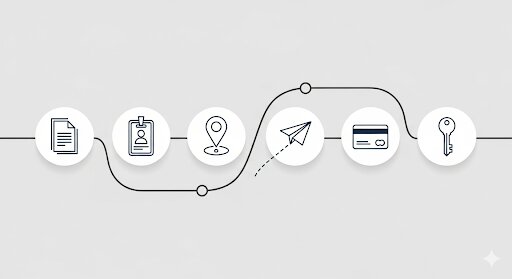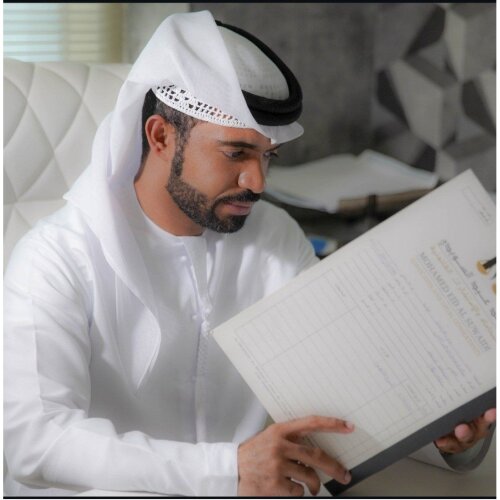Table of Contents
- Introduction: Navigating Your Dubai Business Venture
- What Exactly is a Dubai Free Zone Company?
- Free Zone vs. Mainland vs. Offshore
- Defining Characteristics of a Free Zone Entity
- A Realistic Breakdown of Costs for a Free Zone Company Setup in Dubai
- One-Time Setup Fees
- Recurring Annual Costs
- Variable and Potential "Hidden" Costs
- The Unbeatable Benefits: Why Choose a Dubai Free Zone?
- Financial Incentives
- Operational Efficiency
- Strategic Location
- The Step-by-Step Company Formation in Dubai Process
- Step 1: Determine Your Business Activity
- Step 2: Choose a Company Name and Legal Structure
- Step 3: Select the Right Free Zone
- Step 4: Submit Your Application and Documents
- Step 5: Pay Fees and Sign Incorporation Documents
- Step 6: Receive Your Business License and Visas
- Choosing the Right Dubai Free Zone for Your Business
- Your Next Step to Launching Your Dubai Venture
Dubai stands as a worldwide beacon for businesses, praised for its futuristic vision, strategic position, and notably business-friendly atmosphere. For international investors and company owners, the possibility of beginning an enterprise here is tremendously enticing. However, this initial excitement may sometimes be confronted with a confounding terrain of alternatives. The essential selection between a mainland, offshore, or free zone entity, combined with ambiguity about the exact costs and procedures involved, may be daunting. Making the incorrect pick at this early stage might lead to unforeseen costs and serious operational constraints down the road.
This detailed guide is aimed at offering clarity to the process of free zone company formation in Dubai. We will delve beyond the headlines to present a realistic analysis of the actual expenses, analyze the significant advantages, and detail the step-by-step procedure of creating your enterprise. Our objective is to empower you with the needed information to make a smart and confident choice for your new business endeavor in one of the world's most dynamic marketplaces.

What Exactly is a Dubai Free Zone Company?
To make an informed choice, it is essential to understand how a free zone company fits within the broader UAE corporate landscape. The structure you select will directly impact your market access, ownership rights, and operational capabilities.
Free Zone vs. Mainland vs. Offshore
A Dubai Free Zone company is a business that is set up in a specific economic region and follows its own laws and regulations. The main goal of this structure is to attract foreign investment by granting tax breaks and making it easier for businesses to deal with other countries. On the other hand, a Mainland Company that is registered with the Dubai Department of Economic Development (DED) may do business and trade directly throughout the whole UAE market without any restrictions. The offshore company in Dubai is a third kind of organization. It is a legal instrument for international commerce, keeping assets, and structuring corporations, but it cannot do business in the United Arab Emirates.
Defining Characteristics of a Free Zone Entity
Several core features define a free zone company. A primary aspect is its operational scope, as business activities are generally confined to the company's specific free zone and international markets. To sell products or services directly on the mainland, a free zone company typically needs to partner with a local distributor. Furthermore, each of the 40+ free zones operates under its own independent governing authority, which handles all licensing and regulatory compliance. For foreign investors, the most compelling characteristic is the guarantee of 100% ownership and control, which removes the historical requirement of needing a UAE national as a partner.
A Realistic Breakdown of Costs for a Free Zone Company Setup in Dubai
While the benefits are clear, a successful launch requires a transparent understanding of the investment involved. Costs can vary significantly based on your chosen free zone, business activity, and office requirements, but they can be broken down into distinct categories.
One-Time Setup Fees
Your initial capital outlay will cover several key incorporation costs. A one-time registration fee is paid directly to the free zone authority to formally establish your company. The price of your business license in Dubai is another primary expense, and its cost is directly tied to the specific activities your company will undertake. You must also budget for office space, which presents a wide cost spectrum, from an economical flexi-desk agreement to a long-term lease on a private office. Finally, mandatory administrative fees for your company's establishment card, which is required for visa processing, will also be part of this initial phase. For a preliminary estimate, some authorities like the Dubai Development Authority (DDA) offer fee calculators on their websites.
Estimated One-Time Setup Fees for a Dubai Free Zone Company (2025)
Fee Category Description Estimated Cost Range (AED) Estimated Cost Range (USD) Notes Registration Fee A one-time fee paid to the free zone authority to officially register and incorporate the company. 5,000−15,000 AED $1,365 - 4,100 This is a standard administrative fee for processing the application. Some free zones bundle this with the license fee. Business License The annual fee for the license that permits your company to conduct specific business activities. The cost depends heavily on the type of activity (e.g., commercial, service, industrial). 10,000−50,000+ AED $2,725 - 13,650+ This is often the largest component of the initial cost. High-demand or specialized activities (e.g., certain financial services) will be at the higher end of the range. The fee is renewed annually. Office Space The cost of securing a physical or virtual presence in the free zone, which is a mandatory requirement. 3,000−40,000+ AED $820 - 10,900+ Flexi-Desk/Co-working: 3,000−15,000 AED.
Private Office: 20,000−40,000+ AED annually (paid upfront). Prices depend on size, location, and free zone.Establishment Card A mandatory card that registers your company with the immigration and labor authorities, enabling you to apply for employee visas. 1,500−2,500 AED $410 - 680 This card has a small annual renewal fee. The initial fee is a one-time setup cost. Visa(s) Cost for the investor or employee residence visa. The total depends on the number of visas required. 4,000−7,000 AED (per visa) $1,100 - 1,900 (per visa) This range typically includes medical tests, Emirates ID application, and visa stamping. Costs can vary if the applicant is inside or outside the UAE. Total Estimated Initial Outlay Sum of the above one-time setup costs. 23,500−114,500+ AED $6,400 - 31,200+ This total represents a typical range for a small to medium enterprise with 1-2 visas and a basic office solution. It excludes any share capital deposit requirements that some free zones may have.
Recurring Annual Costs
Beyond the setup, you must plan for ongoing annual expenses to maintain your company's good standing. The most significant of these is the yearly renewal of your trade license, which is essential for legal operation. Your office lease will also be an annual recurring cost. Additionally, all residency visas for yourself and your employees must be renewed, incurring regular fees. While opening a corporate bank account is often straightforward, be aware that many banks have minimum balance requirements, which can tie up a portion of your working capital.
Variable and Potential "Hidden" Costs
Several other variable costs require careful budgeting to avoid surprises. These include mandatory health insurance for all visa holders, visa processing for any dependents, and fees for the legal attestation of personal and corporate documents from your home country. One of the most critical variables is the cost of professional guidance. While it is an upfront investment, navigating the complexities of documentation and compliance with one of the experienced business lawyers in Dubai can prevent costly errors, save significant time, and provide you with a clear, comprehensive budget from the very beginning.
Duration of Validity for Licenses and Visas
The fees you pay are not for a lifetime. They cover specific validity periods, after which they must be renewed to keep the company legally compliant.
Component Standard Validity Period Notes Business License 1 Year This is the most common duration. Licenses must be renewed annually. Some free zones offer multi-year (2 or 3-year) license packages, often at a discounted rate. Establishment Card 1 Year This card is tied to your company's license and must be renewed annually along with it. Investor/Employee Visa 1 to 3 Years The standard validity for visas issued by free zones is typically 2 or 3 years. This must be renewed before expiration to maintain legal residency. Office/Flexi-Desk Agreement 1 Year Your tenancy contract or flexi-desk agreement is usually an annual contract that needs to be renewed to support your business license renewal.
Why Choose a Dubai Free Zone?
The decision to establish a company in a Dubai free zone is driven by a powerful combination of financial, operational, and strategic advantages that create an exceptionally supportive business environment.

The financial incentives are often the most compelling factor for entrepreneurs. Businesses can benefit from a 0% corporate tax rate, provided they meet the specific criteria of a "Qualifying Free Zone Person" under the current regulations. Complete freedom from personal income taxes further enhances the financial appeal. Beyond taxation, companies operating in free zones face no currency restrictions and are permitted the full repatriation of all their capital and profits, ensuring total financial control. For the most current official regulations, it's always wise to consult authoritative sources such as the UAE Government Portal.
Beyond the balance sheet, the operational environment within a Dubai free zone is built for efficiency. The company setup process is notably streamlined and often less bureaucratic than in other jurisdictions. Entrepreneurs immediately gain access to world-class infrastructure, from advanced logistics facilities to cutting-edge digital connectivity. Many zones are also themed around specific industries, creating powerful ecosystems for networking and innovation in fields like technology, media, and finance. A simplified and efficient system for processing employee residency visas further reduces the administrative burden on growing companies.
The location of Dubai is a major benefit in and of itself. The city provides a natural link between the economies of the East and the West. It gives firms access to new and existing markets in the Middle East, Africa, Europe, and Asia that no other city can match. This strategic location is backed by a logistical network that is known across the globe and includes some of the busiest airports and seaports in the world. This makes it an efficient and strong center for international commerce and operations.
The Step-by-Step Company Formation in Dubai Process
There is an established series of steps to follow in order to start your free zone business. Here is a systematic list of the main steps:
Step 1: Determine Your Business Activity
This is the foundational step. You must precisely define all business activities your company will engage in. This decision is critical because it directly determines the type of business license you require and narrows down which free zones are suitable for your venture.
Step 2: Choose a Company Name and Legal Structure
Next, you will pick a trade name for your firm that fits with the UAE’s naming rules. At the same time, you must decide on the company's legal form. The two most frequent alternatives are a Free Zone Establishment (FZE), which has a single shareholder, or a Free Zone Company (FZCO), for entities with two or more partners.
Step 3: Select the Right Free Zone
Based on your company activity, budget, and logistical demands, you will find the most suitable free zone. This is a crucial strategic choice, since each zone provides distinct advantages, infrastructure, and an environment geared to various businesses.
Step 4: Submit Your Application and Documents
You will next complete and submit the formal application form to your selected free zone authorities. This must be supported by the relevant supporting papers, which normally include passport copies of the stockholders and a business plan. The particular standards might be extensive and vary by zone. To ensure your proposal is thorough and precise, many businesses consult with business lawyers in Dubai to handle this essential step without delays.
Step 5: Pay Fees and Sign Incorporation Documents
Once your application receives initial approval from the authority, you will be issued an invoice for the necessary registration and license fees. After payment, you will be required to sign the official company formation documents, such as the Memorandum of Association.
Step 6: Receive Your Business License and Visas
After all documents are signed and payments are processed, the free zone authority will issue your official business license. With this license in hand, you can open your corporate bank account, begin the process of applying for your own and your employees' residency visas, and formally launch your business operations

Choosing the Right Dubai Free Zone for Your Business
With over 40 free zones in Dubai, picking the appropriate one is likely the most influential choice you will make throughout the setup process. This option goes beyond merely getting a license; it determines your business's ecology, operating expenses, and future development possibilities.
Your selection should be a strategic assessment based on multiple overlapping elements. The major aspect is ensuring the zone's approved business activities precisely complement your operating model. Beyond that, assess the actual location and the quality of its infrastructure; a trade firm may favor closeness to an airport, while a consultant would prefer a central business area. The pricing structure is another crucial feature, with major variances between premium, established zones and newer, more budget-friendly options. You should also carefully analyze the various office options, from flexi-desks to permanent premises, and consider the administrative efficiency and repute of the zone's governing body.

To highlight the variety, explore some of Dubai's most notable centers. For business enterprises focusing on logistics, manufacturing, or large-scale commerce, the Jebel Ali Free Zone (JAFZA) delivers exceptional access via its world-class harbor, as explained on its official website. In sharp contrast, the Dubai International Financial Centre (DIFC) works as a prominent center for banking and legal services, functioning under its own globally recognized common law framework. Creatives and IT innovators generally flock towards the specialized ecosystems found in Dubai Media City and Dubai Internet City. For enterprises seeking cost-effective solutions and flexibility across a broad variety of general operations, a popular alternative is the International Free Zone Authority (IFZA). Meanwhile, the Dubai Multi Commodities Centre (DMCC) stands as a worldwide acknowledged leader for enterprises interested in commodities trading.
Your Next Step to Launching Your Dubai Venture
A Dubai free zone presents a powerful platform for international entrepreneurs, offering an unparalleled combination of 100% foreign ownership, tax efficiency, and access to a global market. However, capitalizing on these advantages requires diligent planning. The success of your venture will hinge on a clear-eyed assessment of the costs, a strategic selection of the right free zone, and a precise understanding of the legal formalities. The decisions made before you ever apply for your license will set the foundation for your company's entire future in the region. Investing in proper legal guidance upfront is not an expense but a crucial step toward mitigating risk and ensuring a compliant, successful launch.
Setting out on your company setup in Dubai journey is an exciting prospect. To ensure the process is both smooth and fully compliant from the start, partnering with a legal expert is a wise strategic decision. Lawzana provides a trusted platform to connect with vetted business lawyers in Dubai who specialize in free zone formation and can provide critical guidance from your initial questions to the final issuance of your license.





